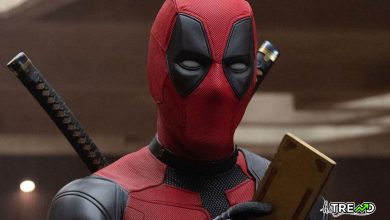- Knowledge is power
- The Future Of Possible
- Hibs and Ross County fans on final
- Tip of the day: That man again
- Hibs and Ross County fans on final
- Spieth in danger of missing cut
A great movie trailer can single handedly turn a movie into a success story like that genius Cloverfield trailer in 2007 that didn’t say what the title of the movie was. But it’s more common these days, I’d argue, for a trailer to have the opposite impact. A generic trailer can so thoroughly dampen hype for a film that something like Furiosa, a great movie everybody likes that’s a sequel to a great movie everybody likes, could become a major box office disappointment. This article provided by Hitrend.
Furiosa was the second big financial letdown in May after The Fall Guy kicked the month off with a similarly low-key box office take, and both will end up coming in well below the numbers that summer blockbusters are supposed to have–neither of these films will get to the $100 million mark at the domestic box office. There are a lot of factors playing a part in why the summer has been so dismal thus far, but this my favorite: the trailers for those movies were awful.
In technical terms, the ads for The Fall Guy and Furiosa are fine. They’re slickly edited, and they played up the cool action that those films have and all that. But they lacked something that’s just as important as big explosions for potential audiences: information. The Fall Guy was marketed on being a movie that Ryan Gosling does action scenes in–but if you wanted to actually know what it was about, or what the title meant, you’d have to google it. Furiosa, likewise, was sold as little more than Fury Road again but with new actors, with the trailers doing little to demonstrate how immensely different it is in structure. Furiosa is an epic tale that takes place over 18 years–it’s the Godfather Part 2 of Mad Max, basically, but the ads hid everything that made it different from the last one.
The core issue, really, is how cookie cutter the Hollywood marketing machine has gotten–just about every big trailer is cut similarly to these ones I’m complaining about. But it’s fine when they actually give us information, or are able to come somewhat close to matching the vibe of the movie. That’s certainly a factor in how Denis Villeneuve’s Dune flicks have managed to become hits, with Part Two reigning as the top movie of 2024 so far–the trailers for both Dune movies generally reflect the vibe of the films they are selling, and they use narration to fill you in on the various conflicts in the story so you can get a sense of what’s going on without reading any books. In other words, those trailers come off subconsciously to viewers as sincere and trustworthy.
And by extension, the trailers for The Fall Guy and Furiosa, which seem to fear trying to sell those movies on their own actual merits, play instead as empty and meaningless and not really worth caring about. Hollywood’s been churning out trailers like this, which coast entirely on vibes at the expense of telling you what the movie is about, non-stop for about a decade–we may just be over it at this point.
This trend began a very long time ago, but it really solidified itself as the Hollywood norm with a three-movie sequence in 2015 and 2016, starting with Star Wars: The Force Awakens. One thing that director JJ Abrams loved talking about back in the day was this idea of everything being a mystery for the sake of being a mystery–“maybe there are times where mystery is more important than knowledge,” he said in a TED Talk about his love of the “mystery box” all the way back in 2008. This idea fueled Disney’s marketing for The Force Awakens, which just showed random clips from the movie without any context that might allow you to glean the basic plot details. Clearly that was enough for that movie, since it made $2 billion at the global box office.
Then, while The Force Awakens was still in theaters, something strange happened at rival Warner Bros: They released a snazzy new trailer for David Ayer’s Suicide Squad, cut to Queen’s Bohemian Rhapsody. Everyone loved the trailer, but it apparently didn’t reflect the tone of the movie that director David Ayer was putting together. So Warner Bros did the logical thing by re-editing the movie to make it like the trailer. The result was one of the worst comic book movies ever, but the juice from that trailer was so strong that Suicde Squad was a big hit anyway.
The third movie in this story is another Star War. Lucasfilm and Disney spent 2016 re-doing Rogue One after the powers-that-be didn’t like director Garth Edwards’ rough cut, with writer Tony Gilroy reportedly re-filming as much as half the movie. But the marketing people apparently didn’t get the new material, because the pre-release trailers and ads for Rogue One relied heavily on scenes and shots that weren’t used in the film. Rogue One made a billion dollars anyway, and is considered the best of the Disney Star Wars movies.
This sequence of events taught Hollywood all the wrong lessons about how to market a movie. The trailers don’t need to actually tell you anything about the movie, or demonstrate what they’re like–instead, they just need to blast you with hype-tastic vibes and promises of an empty spectacle that will remind you of other spectacles you’ve already watched.
But as the summer box office is demonstrating, that’s not a way of doing things that works really well these days for most movies. You can get away with it with some stuff, like Godzilla x Kong or Kingdom of the Planet of the Apes, which both have premises that are so specific and familiar that you don’t need a ton of detail in the marketing. But most movies aren’t like that. With The Fall Guy, you need the marketing to tell you some basic premise stuff–it’s based on an old show that no one in the primary demographic has heard of, and the trailer barely even hints that it’s got a conspiracy/mystery kind of story.
And with Furiosa’s ads so focused on reminding you of Fury Road, it makes folks wonder why they need to watch the new one. They already saw Fury Road, after all, and the trailer had nothing to offer beyond “it’s more Fury Road.” Except that’s not what Furiosa is at all–it’s an epic tale that takes place over decades, with half the movie following Furiosa when she’s an actual child. It’s a very different movie from Fury Road, but it’s hard to expect consumers to know that when the marketing did everything it could to hide everything that made Furiosa fresh and interesting.
As this summer’s box office receipts are indicating, though, this substance-free marketing style is reaching the end of its usefulness. With tons of streaming options available without going out, you can’t just fill movie theaters with a bunch of anonymous content without doing anything to distinguish it from stuff you can watch elsewhere, and after watching so many same-y trailers for so many years, folks don’t fall for those boring, by-the-book tactics so much anymore. So if Hollywood wants to have a chance to actually recover in a post-COVID world, it’s gotta find a new way to sell its movies.
Source : gamespot





